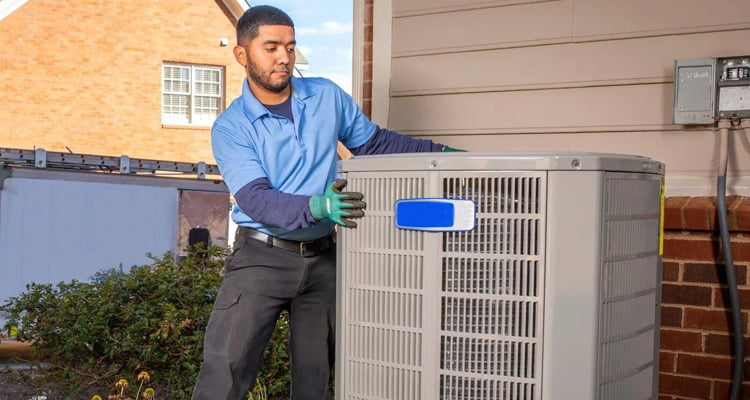
Installing a central air conditioner is a significant investment for any homeowner. It’s not just about purchasing the unit; various factors influence the overall cost of installation.
Understanding these factors can help you budget more effectively and make informed decisions, especially when it comes to choosing a reliable HVAC company to install central AC.
Let’s dive into the key elements that affect the installation costs of a central air conditioning system.
Type Of Air Conditioner
The choice of air conditioner type plays a crucial role in determining the cost. Central air conditioners come in different models, including split systems, packaged units, and heat pumps. Each has its own price point.
Typically, split systems, which separate the compressor and condenser from the air handling unit, are more affordable than packaged units, where all components are housed together. Heat pumps, which provide both cooling and heating, can be more expensive upfront but offer savings in the long run through energy efficiency.
Size & Capacity
Size matters when it comes to air conditioning. The capacity of an air conditioner is measured in tons or BTUs (British Thermal Units). The larger your home, the more powerful your AC unit needs to be to cool it effectively.
However, bigger isn’t always better. An oversized unit can lead to inefficiencies and increased costs. Conversely, an undersized unit will struggle to cool your home, leading to wear and tear from overuse.
A professional HVAC technician can perform a load calculation to determine the ideal size for your home, ensuring efficiency and comfort.
Energy Efficiency
Energy efficiency is another significant factor affecting installation costs. Air conditioners are rated by their SEER (Seasonal Energy Efficiency Ratio) numbers. A higher SEER rating indicates better energy efficiency. While high-efficiency units are more expensive to purchase, they can substantially reduce your long-term energy bills.
Investing in a high-SEER AC model might cost more upfront, but the savings on utility bills can be substantial over the lifespan of the unit.
Installation Complexity
The complexity of the installation process can greatly impact the cost. Factors such as the layout of your home, the condition of existing ductwork, and accessibility can all affect how easy or difficult it is to install your new system.
Homes without existing ductwork will require significant modifications, which can be costly. Similarly, if the installation space is difficult to access or requires custom modifications, the labour costs will increase.
Ductwork
Speaking of ductwork, its condition is pivotal in determining installation costs. If your home already has ductwork, the installer will need to inspect it to ensure it’s in good condition and suitable for your new system.
However, repairing or replacing ductwork can add a considerable amount to the total cost. Efficient and well-maintained ductwork is essential for the performance of your new air conditioner, so addressing any issues upfront can save you money in the long run.
Labor Costs
Labor costs vary by region and by contractor. It’s essential to get multiple quotes from reputable HVAC installers to ensure you’re getting a fair price.
Don’t just go for the cheapest option; ensure that the installer is experienced, licensed, and insured.
The quality of installation will affect the efficiency, performance, and lifespan of your air conditioning system.
Permits & Inspections
In many areas, installing a new air conditioning system requires permits and inspections to ensure the installation complies with local building codes. The cost of these permits and the inspection process can vary depending on your location.
This is a necessary expense that ensures the safety and legality of your installation.
Additional Features
Finally, additional features and add-ons can affect the cost. Features such as programmable thermostats, zoning systems, and air quality enhancements like dehumidifiers or UV air purifiers can increase costs but provide greater comfort and improved air quality.
In conclusion, several factors contribute to the cost of installing a central air conditioner. Understanding these aspects can help you plan your budget and choose the right system for your home.
Always consult with professional HVAC contractors to get the most accurate estimates and ensure that your installation is performed correctly, optimizing your comfort and your system’s efficiency.
By considering all these factors, you can ensure that your central air conditioning installation is a wise and rewarding investment, bringing you comfort for years to come.
About Us
Looking to beat the heat with a central air conditioner installation? Pro West Heating & Air Conditioning is here to help!
We understand that navigating the factors affecting installation costs can be confusing. That’s why our expert technicians are here to guide you through the process, ensuring you get the perfect system for your needs at the best possible price.
Pro West prioritizes customer satisfaction above all else. Moreover, we specialize in central air conditioner installations, repairs, and maintenance, keeping your home cool and comfortable all summer long.
Contact us today to schedule a free consultation and discuss your central air conditioning needs.